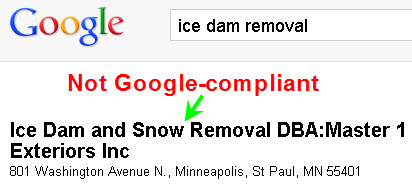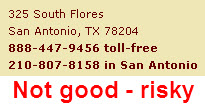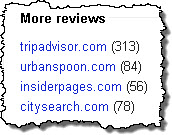 You chaps and dames in the UK may drive on the wrong side of the road and confuse beer with cocoa (only one of which should be served warm!), but at least the challenge of getting a business visible in Google Places is the same across the pond as it is here in the States.
You chaps and dames in the UK may drive on the wrong side of the road and confuse beer with cocoa (only one of which should be served warm!), but at least the challenge of getting a business visible in Google Places is the same across the pond as it is here in the States.
OK, fine, so maybe even the Google Places / local-search-visibility puzzle is different in the UK from how it is here. That is, you need to list your business on different third-party sites in order to get maximum local visibility (which isn’t news to you).
The first step, of course, is to know what those third-party sites are.
Enough of me mates have asked me to cough up my list of UK local-search citation sources. It’s about bloody time I do so.
Here’s the full monty:
(extra-important sites in bold)
118Information.co.uk
AgentLocal.co.uk
ApprovedBusiness.co.uk
BizWiki.co.uk
Britaine.co.uk
BTLinks.com
BusinessNetwork.co.uk
City-Listings.co.uk
City-Visitor.com
CityLocal.co.uk
CompaniesintheUK.co.uk
DigiBritain.co.uk
FreeBD.co.uk
FreeIndex.co.uk
Fyple.co.uk
GoMy.co.uk
HotFrog.co.uk
It2.biz
Local.TrueKnowledge.com
LocalDataCompany.com
LocalDataSearch.com
LocalMole.co.uk
LocalLife.co.uk
Manta.com
MarketLocation.com
MiQuando.com
MisterWhat.co.uk
MySheriff.co.uk
Opendi.co.uk
Qype.co.uk
Recommendedin.co.uk
Scoot.co.uk
SmileLocal.com
TheBestof.co.uk
TheDirectTree.com
TheDiscDirectory.co.uk
ThomsonLocal.com
Tipped.co.uk
TouchLocal.com
UFindUs.com
UK.Uhuw.com
UK.WowCity.com
UK-Local-Search.co.uk
UK-Locate.co.uk
UKSmallBusinessDirectory.co.uk
Wampit.com
WheresBest.co.uk
WhoseView.co.uk
Yell.com
Yelp.co.uk
Zettai.net
Now comes the fun part: listing your business on all the above sites. As I’m sure you’ve noticed, links to the “Add business” pages are on the right, so at least you don’t have to hunt around for them.
I’ve added all of the sites to my Definitive List of Local Search Citations as well—where they mingle with their Yank counterparts.
Last but not least, credit goes to David Mihm for listing a number of these sites in a great blog post he did a few years ago on top UK citation sources.
I’m sure I’ve missed quite a few, so please leave a comment if you have any sites to suggest.
Cheers!
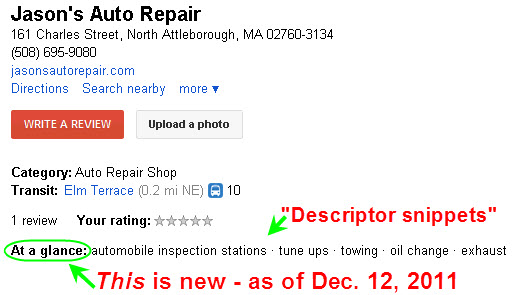
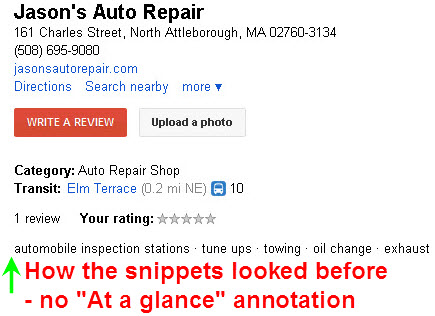
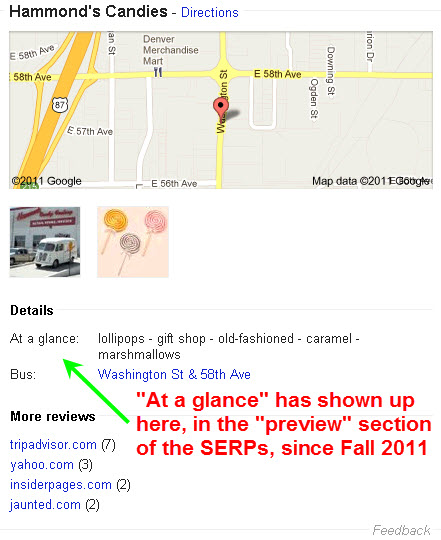
 So what you need to do is eliminate mess from your “local presence. You need to remove online clutter that can trip up Google and hurt your local rankings or (worse) earn your listing a suspension. There’s a lot of garbage floating around Google Places and the rest of the Web, and it can hurt your local visibility to customers.
So what you need to do is eliminate mess from your “local presence. You need to remove online clutter that can trip up Google and hurt your local rankings or (worse) earn your listing a suspension. There’s a lot of garbage floating around Google Places and the rest of the Web, and it can hurt your local visibility to customers.